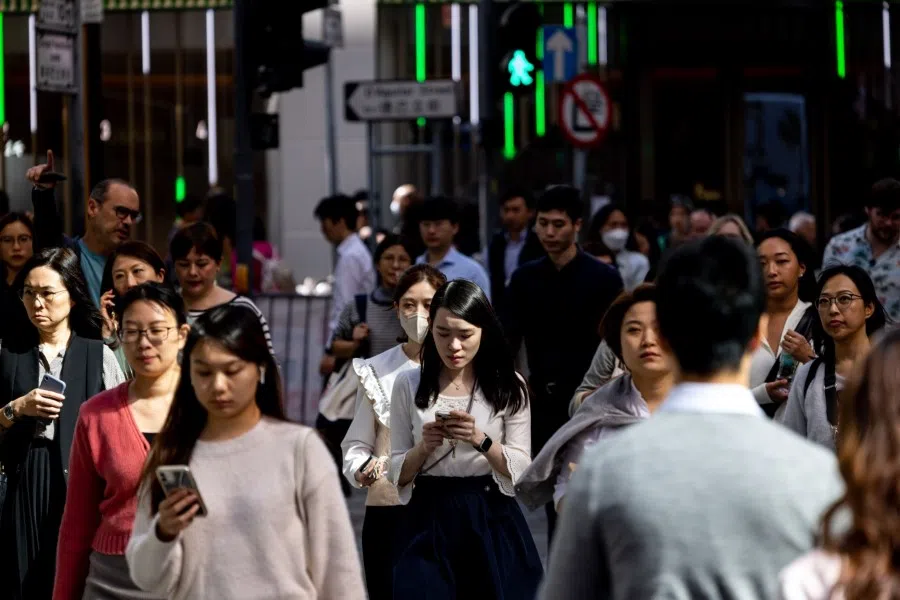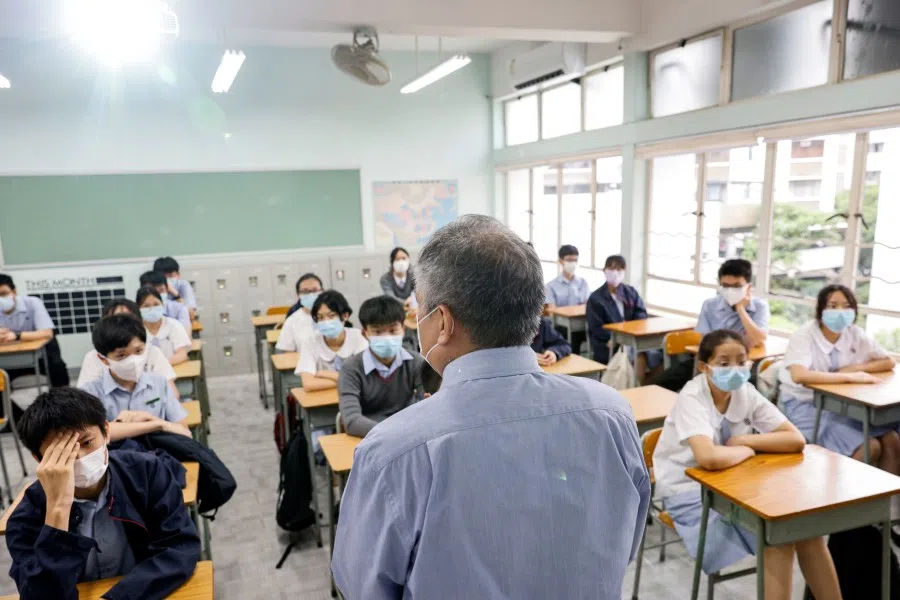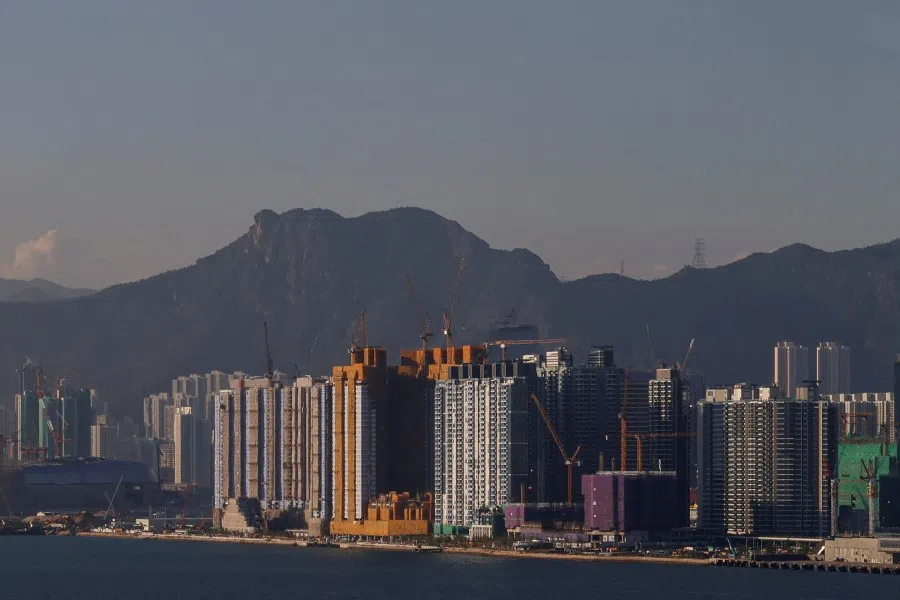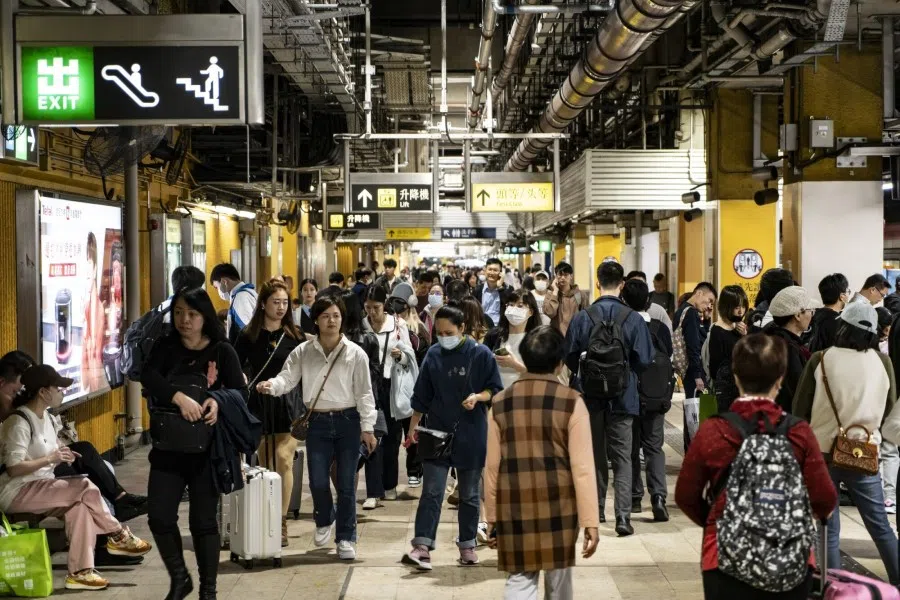[Big read] Has Hong Kong attracted top talents with its one-year-old Top Talent Pass Scheme?
The talent crunch in recent years prompted the local authorities in Hong Kong to launch the Top Talent Pass Scheme (TTPS) at the end of 2022. At the first anniversary of Hong Kong's all-out talent grab, opinions remain divided as to whether the TTPS can successfully boost Hong Kong's competitiveness and attract talent who stay for the long term.

Tang Yiling is a graduate of Zhejiang University. The post-90s Hunan native works for a fintech company in Shenzhen, mainly in charge of AI product planning and marketisation.
In March last year, after hearing about Hong Kong's Top Talent Pass Scheme (TTPS) from her friend, Tang immediately applied; three months later, her application was approved by the Hong Kong authorities. In September 2023, she received her Hong Kong identity card and officially became a resident.
Becoming a Hong Konger
When interviewed, Tang said she studied in Canada and likes a cosmopolitan environment. As a melting pot of both Chinese and Western cultures, Hong Kong is a metropolis that contains what she seeks in life. "Previously, I sometimes came to Hong Kong for art and culture events or exhibitions. When I heard about the TTPS, I applied without thinking too much."

This was also more or less the case for 33-year-old Huang Wangyu. After graduating from Sun Yat-sen University in Guangzhou with a bachelor's degree, he furthered his education in Australia before working for another six to seven years there. Huang was then posted to his company's Hong Kong office where he now works as a data engineer. In January last year, he learnt about the TTPS and submitted his application, which was approved within a day.
A native of Meizhou in Guangdong, Huang grew up watching Hong Kong TV dramas and developed a deep affection for the region. To Huang, his residency application goes beyond cultural identity to include practical benefits, such as a vibrant lifestyle and work culture, lower taxes than in Australia, a powerful passport which grants him visa-free travel to many countries, and so on.
To qualify for the TTPS, applicants need to earn at least 2.5 million Hong Kong dollars (or US$319,600) annually, or have a bachelor's degree from a global top 100 university, and a minimum amount of work experience accumulated in the five years prior to the application.
Of course, Huang's decision also had to do with his family. He told me that his parents still live in Meizhou, not far from Hong Kong. "Now, I go home every month to spend time with my parents. They are just four to five hours away by car, which is much more convenient than [when I was in] Australia."
After residing for more than a year in Hong Kong, Huang is enjoying his life. Other than work, he also makes an effort to integrate with local society. He has gotten to know some locals and volunteers for community work, such as beach clean-ups and visiting elderly folks living on their own. He said, "Given that I have become a resident, Hong Kong is now my home and I have a duty to contribute."
Talent-grabbing measures after three years of manpower drain
In the past year, many other young people like Tang and Huang have moved to Hong Kong. In the three years prior, political and social upheavals caused Hong Kong to lose manpower in the hundreds of thousands, prompting the SAR government to come up with a series of measures to attract talent, including the TTPS that was launched at the end of December 2022, to open up Hong Kong to foreign talent.
To qualify for the TTPS, applicants need to earn at least 2.5 million Hong Kong dollars (or US$319,600) annually, or have a bachelor's degree from a global top 100 university, and a minimum amount of work experience accumulated in the five years prior to the application.

As compared to previous talent-attraction schemes by the Hong Kong government, the threshold for the TTPS is significantly lower, which explains why it has been very well-received following its introduction. Chinese social media platforms such as Xiaohongshu are full of publicity posts on the subject, with some claiming to have applied successfully, while others are purportedly immigration agencies offering to help applicants relocate to Hong Kong with their families for service fees of just a few thousand RMB.
...the government approved 39,021 applications as of 30 September last year. Among these, nearly 95% were from mainland China.
Successful applicants mostly youths
This year 2024 marks the first anniversary of the TTPS. On 7 January, Chris Sun, the Hong Kong secretary for labour and welfare, who is in charge of the scheme, disclosed that the TTPS received applications in excess of 50,000 as of end November 2023. Among these, 47,000 applications have been approved, and around 30,000 successful applicants have moved to Hong Kong. Sun said that the scheme has been rather successful.
While the SAR government did not provide details about TTPS applicants, data obtained by online media outlet, The Collective, from the immigration department indicates that the government approved 39,021 applications as of 30 September last year. Among these, nearly 95% were from mainland China. This was followed by 440 from Canada or 1.1% of the total in second place, while there were 415, 279, and 168 successful applications from the US, Australia, and Singapore respectively, or about 2.2% of the total.
The figures also show that most of the successful applicants fall either within the 18 to 30 years old or the 31 to 40 years old age groups, with each group accounting for 36% of the total. Among the first group, nearly 64% of the successful applicants have a degree from a global top 100 university and under three years of working experience; in the latter, around 79% of the successful applicants have three years of working experience within the past five years.
As for the distribution of successful applicants by industry, the immigration department started requiring applicants with job experience to indicate the industry they work in from 1 March 2023. As of now, it has not released the relevant data, but only said that it will be collating the data periodically.
... the children of successful TTPS applicants are likely to fill some of the surplus school vacancies in Hong Kong.
Children of successful applicants mitigate student shortage
In recent years, the rise in emigration has led to a drastic reduction in Hong Kong's labour force, lowering its competitiveness. The influx of applicants who are young, earn high incomes, or have advanced qualifications under the TTPS will undoubtedly fill the gaps in its labour force and promote the development of key industries
Additionally, the large inflow of successful TTPS applicants in the last year has brought many benefits to Hong Kong. For example, the sustained exodus of locals has reduced the student population in Hong Kong, and many schools are unable to bring in enough students. Feedback provided by those in the education sector indicates that following the implementation of the TTPS, the children of successful TTPS applicants are likely to fill some of the surplus school vacancies in Hong Kong.
Based on figures provided by the immigration department, as of September 2023, it has issued nearly 70,000 dependents' passes/entry permits under the TTPS. Nearly 60% of these or 40,000 were issued to minors, around 5% of the aggregate enrolment of 797,000 students in kindergartens, primary schools and secondary schools in Hong Kong.

In September last year, the Hong Kong Federation of Education Workers (HKFEW) and Hong Kong Top Talent Services Association surveyed 326 foreign talents who have relocated to Hong Kong, and found that 75.8% would let their children attend a Hong Kong school.
Pui Kiu College is a top school in Hong Kong. On 9 December last year, it organised an information session, and some in the audience were top talents who had moved to Hong Kong with their families. There were also some mainland Chinese from Shenzhen and Zhuhai, who intended to relocate to Hong Kong through such talent schemes.
Principal Wu Yuk Chi said that between the resumption of normal travel between Hong Kong and mainland China at the start of last year, and before the summer holidays, the school received thousands of enrolment applications for various levels from the children of successful TTPS applicants.
Wu said, "Previously, we have never come across such a phenomenon. Demand for Hong Kong-style education is undeniable, and I believe this is the way forward for our education sector."
... rental prices in Hong Kong will rise by a further 10% this year to outdo housing prices for the third year in a row. - Sammy Po, CEO, Midland Realty housing division for Hong Kong and Macau
Rentals rose though property prices fell
Last year, the downturn in Hong Kong's economy led to a sustained drop in housing prices. The Centa-City Leading (CCL) index which reflects prices in the resale housing market, fell by 6.37% last year, nearly 20% below its historic high in 2021. The prices of some residential properties even fell to levels not seen since 1997. However, rental prices moved in the opposite direction, with the Centa-City Rental Index (CRI) rising by 7.37% last year, the largest annual appreciation since 2014.

Sammy Po, CEO of the Midland Realty housing division for Hong Kong and Macau, told me that through his interactions with frontline colleagues, he observed that most talents chose to rent property in Hong Kong, driving rentals upwards.
Po said schemes such as the TTPS boost the property market. Even if 10% to 20% of the successful applicants consider renting, the positive effect on the market is still considerable. He anticipates that rental prices in Hong Kong will rise by a further 10% this year to outdo housing prices for the third year in a row.
Not all smooth sailing for the TTPS
While the high number of applications for the TTPS is encouraging, Hong Kongers are divided over whether the numbers hold water, and the actual economic benefits.
A successful TTPS applicant who declined to be named holds a senior position and works in innovation and technology in mainland China. Even though he became a Hong Kong resident in the second half of last year, he still lives and works in mainland China. He said after his successful application, he looked for jobs in Hong Kong, but there were few openings for similar positions, while the remuneration and benefits are also not significantly better than those of his current job, so he is still undecided about whether to reside in Hong Kong in the future.
He also found the TTPS requirements and approval process rather lax. There is no timeline for successful applicants to arrive in Hong Kong, nor any requirement for them to find a job within a certain period of time. He knows of friends who have also been successful in their applications, but most of them see it as a way to add value to their resumes, and few actually moved to Hong Kong.
... some successful TTPS applicants choose to return to mainland China after receiving their Hong Kong identity card, as their Hong Kong residency is just a means to travel abroad more conveniently. - Chan Wai Keung, Lecturer, Hong Kong Community College, Hong Kong Polytechnic University
Expensive housing and few job opportunities
Chan Wai Keung, a lecturer at the Hong Kong Community College of the Hong Kong Polytechnic University, said that to his knowledge, some successful TTPS applicants choose to return to mainland China after receiving their Hong Kong identity card, as their Hong Kong residency is just a means to travel abroad more conveniently. The end of this year marks the second anniversary of the first batch of successful TTPS applicants' time in Hong Kong, and they are supposed to provide the government with proof of their employment in Hong Kong then. The public awaits the assessment of whether the government policy has been a success.
While some TTPS applicants view the scheme as a stepping stone, even those who really want to make it in Hong Kong are finding that working and living in Hong Kong is not as easy as they imagined.
Fintech worker Tang Yiling said the cost of living is higher in Hong Kong than in mainland China, especially housing prices, where she has to earn three times what she was making in mainland China to cope. Currently, she lives near the high-speed railway station in Shenzhen, but she hopes to reside in Hong Kong in the long term.
Accommodation is also an issue for Huang Wangyu. In his first year in Hong Kong, he was paying more than 10,000 Hong Kong dollars each month for a residential unit in Sham Shui Po with a floor space of only 18 square metres. "It was a 40-minute journey to my office by the MTR then, so I moved half a year ago to the Huanggang Port area in Shenzhen. For the same amount, I rented a place that is four times as large and enjoy a much higher standard of living now."

Huang shared that even though the move means he now has to spend more than an hour daily to commute between Shenzhen and Hong Kong by bus to work, it is not a total waste of his time as he can work on the bus, which is acceptable to him.
For successful TTPS applicants, finding employment in Hong Kong is another major challenge. Tang said that Hong Kong is a global financial centre with a huge appetite for fintech talent. Since she happens to work in this area, she has plans to further her career in Hong Kong by working in AI and big data. However, the economic downturn in both mainland China and Hong Kong last year made it more difficult to find a position she wants. She hopes that the government can enlist headhunters to provide successful applicants with employment opportunities.
... their medical, engineering, or accountancy qualifications are not recognised in Hong Kong, so that besides starting their own business, it is difficult for them to find work. - Chan
Tough for senior employees to find jobs with similar remuneration
Tang Fei, a Legislative Council member and vice chairman of the HKFEW, said that most successful TTPS applicants with children are familiar with the Hong Kong education system and are not worried about their children studying there. What is problematic is for them to find jobs in Hong Kong that are similar in seniority and remuneration to their current jobs. Tang feels the government can provide successful applicants with greater support in this regard so as to retain and better utilise them.
Chan Wai Keung of the Hong Kong Polytechnic University pointed out that even though many successful TTPS applicants who come to Hong Kong from mainland China are professionals, their medical, engineering, or accountancy qualifications are not recognised in Hong Kong, so that besides starting their own business, it is difficult for them to find work. In the long run, to resolve this issue, both sides need to mutually recognise professional qualifications.
Chan added that the Hong Kong economy has deteriorated in recent years. As both property and stock prices fall, the unemployment rate may rise, and a huge influx of successful TTPS applicants to Hong Kong may be perceived by some locals as a threat to their rice bowl, causing divisions between mainland China and Hong Kong. This is something that the Hong Kong authorities have to watch out for.
This article was first published in Lianhe Zaobao as "实施一周年 香港高才通计划 要吸人才更要留人心".





